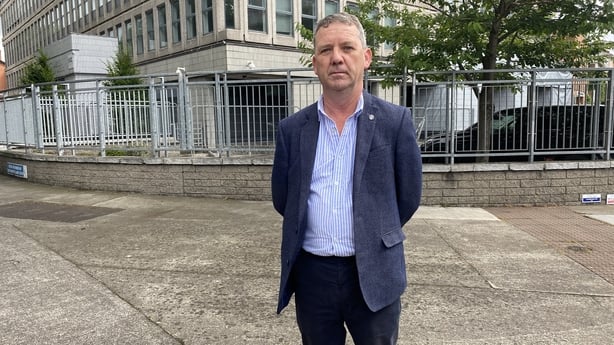Workers at Tara Mines in Co Meath have been asked by the company to express their interest in a proposed voluntary severance scheme.
Staff at Europe's largest zinc mine were today updated by management on its plans to reopen the facility outside Navan in the second quarter of this year.
The site was placed under care and maintenance last June, with 650 workers temporarily laid off.
At the time, the company said it took the decision in response to unsustainable losses, and cited a decline in the price of zinc, high energy costs and inflation as some of the reasons behind its decision.
In a letter to staff today, management said that in order to reopen the mine sustainably, "difficult decisions" would need to be made.
The letter outlined a number of "critical factors" that would determine sustainable reopening, including reducing the annual production targets from 2.6 million to 1.8 million tonnes.
Workers were informed that the "most effective and efficient way" of operating at the reduced targets would require a workforce of 405 full-time equivalent roles.
There are currently approximately 600 full-time equivalent roles at the mine.

Other factors outlined by the company, include a "concentration on a smaller, more efficient active mining footprint", redeployment and retraining, a reduced use of contractors, a new style partnership agreement with the group of unions and implementation of new agreements.
In the letter, the company stated its intention to significantly reduce management levels and numbers and said it was a "firm desire" to protect the existing basic levels of pay.
It said that to do this, many employees will need to do more, accept additional responsibility and be more flexible.
Workers were told that a voluntary severance scheme, along with an early retirement programme, will aim to achieve the manning levels required.
Management and unions are due to enter talks at the Workplace Relations Commission (WRC) on Tuesday.
Management working on rescue plan for mine
In a statement, General Manager at Tara Mines Gunnar Nyström said that management has been developing a rescue plan to address operational challenges.
He said these issues had to be dealt with in order for the mine to reopen on a sustainable basis.
"Once we re-open, we want to be able to remain open. We propose to commence negotiations with the Group of Unions on the rescue plan at the Workplace Relations Commission on Tuesday January 9th," he said.
Mr Nyström said the company has decided to ask Tara Mines employees to express if they are interested in a voluntary severance package, following a request from unions to open such a scheme.
"If we can reach agreement with the group of unions on the details of the rescue plan, we propose to formally open a voluntary severance scheme," he said.
It is understood that under the proposals, which are subject to agreement with unions and employees on a package of measures, workers with five years' service would receive six months pay, while those with ten years service would be given 12 months pay.
Workers can declare an interest in the scheme by 31 January.
SIPTU sector organiser John Regan, representing many workers at the mine, said the group of unions was "disappointed" with how the company had communicated the information around the severence scheme.
He said the unions received the document on its terms and a separate document on the company's rescue plan.
"Neither of them have been discussed with us," he said.

Mr Regan added that it was "not helpful" that both documents were circulated to all employees at the same time as the unions and that doing this, ahead of the WRC talks next week, was "disappointing".
He also said that the terms of the proposed severance scheme "falls way short of what we would be seeking during our negotiations".
Mr Nystrom said the company is "determined to re-open as soon as possible".
"The position remains that if we can reach an agreement with the group of unions by the first week in February, our ambition is to re-open the mine in the second quarter of 2024, assuming there is no significant deterioration in market conditions".







